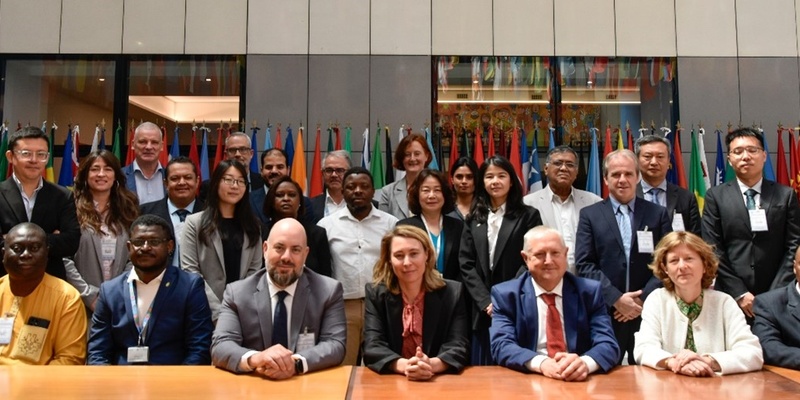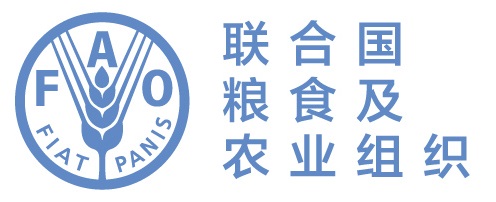IPPC委员会加快推进植物健康标准实施
Posted on Mon, 09 Jun 2025, 13:18

IPPC标准实施与能力建设委员会成员及观察员组织代表合影 ©粮农组织/Anita Tibasaaga
罗马,2025年6月9日。 国际植物保护公约(下称“IPPC”)标准实施与能力建设委员会(下称“IC委员会”)于5月19日至23日在意大利罗马召开会议,旨在讨论战略能力建设行动,审议植物检疫措施委员会第十九届会议(下称“CPM-19大会”)成果,评估全球植物检疫标准的执行情况,并制定促进标准有效实施的未来发展蓝图。
IC委员会作为植检委的下设机构,负责监督《国际植物保护公约》和《国际植物检疫措施标准》(下称“ISPM标准”)的实施工作,并推动IPPC各缔约方的植物检疫能力建设工作。该委员会每年召开两次会议,此为本年度第一次会议。会议吸引了来自农业发展与创业联系委员会(下称“COLEAD”)、欧盟委员会、国际原子能机构、标准与贸易发展基金(STDF)和世界银行的观察员参加。此外,IC委员会还邀请Ravinder Khetarpal接替Elizabeth McCrudden,作为IC委员会专家参会。
“《IPPC 2020-2030年战略框架》的落实工作行至中点,需要采取更具战略性的做法。过去几年,我们在若干重点领域取得了显著进展,包括统一电子数据交换、管理电子商务等新兴有害生物传播途径、建立全球有害生物灾情预警和响应系统(下称“POARS系统”),最近又推出了IPPC植物健康校园。” IPPC秘书处日常事务负责人兼IPPC标准实施与促进组组长Sarah Brunel如是说道。
她感谢IC委员会成员和观察员组织对植物检疫能力建设的承诺,并呼吁为制定和推广标准实施提供更多的资金和技术支持。
讨论要点
CPM-19大会建议:“重新思考ISPM标准”,以增强其实用性,使其对使用者更友好,并提升各项条款的透明度和清晰度。IC委员会就此强调,需及时为每一项ISPM标准制定指导文件,并提供更多资金以推动相关工作。该议题最早在2024年召开的IPPC战略规划小组(下称“SPG小组”)会议上讨论,随后在植检委主席团会议、CPM-19大会(2025年)及各下设委员会会议上继续探讨。IC委员会建议在自8月起召开的IPPC区域研讨会上就相关话题进一步讨论,并由IC委员会提交相关文件至SPG小组2025年度会议。
IC委员会还在会上讨论了以下话题:新IPPC指南的制定;植物检疫能力评估(下称“PCE评估”)工具的强化;定于2025年12月在智利圣地亚哥召开的IPPC系统方法研讨会; “非洲植物检疫计划”、POARS系统等IPPC项目活动之间的进一步协同;以及IPPC主题征集工作的启动。IC委员会还为最后一项工作专门成立了一个工作小组,负责评估各国为IPPC开发标准实施资源所提交的标准实施相关主题。此外,IPPC秘书处将于2025年6月18日星期三举办一场网络研讨会,协助各国提交高质量的提案。
为便于发展中国家利用IPPC ePhyto解决方案签发电子植物检疫证书,CPM-19大会建议自2026年起取消最不发达国家和低收入国家的使用费,并维持现行的“基础费用占三分之二、使用费用占三分之一”的资费模式。一名IC委员会观察员对此建议表示赞同,并强调,关于ePhyto解决方案的实施工作,应评估各国的准备情况与实际需求,并提供有针对性的支持措施。
CPM-19大会还强调,需为IPPC核心标准实施与能力建设活动——包括指南与培训材料制作、PCE评估、POARS系统、镰刀菌TR4全球协调以及IPPC观察系统等——提供更多资金。IC委员会要求IPPC秘书处和财务委员会跟进相关事宜,确保为上述活动分配基础资金。
植物健康创新:今年IC委员会会议期间举办了题为“智慧植物健康:未来展望”的网络研讨会。会上展示了各类数字化诊断工具、人工智能驱动的有害生物监测应用,以及应对主要植物健康问题的各项智能技术。相关项目通过全球征集遴选,向包括捐助方代表和植物健康界在内的400多名与会者进行推介。
塞内加尔和印度在会上展示了ePhyto解决方案和植物健康校园等IPPC项目的实际应用,以展示技术创新如何推动本国的植检能力建设和标准实施。
此外,IC委员会还在会上表彰了粮农组织、IPPC秘书处和区域国际植物保护和家畜卫生组织(OIRSA),三者共同举办了2025年国际植物健康日庆祝活动。该活动强调了人类健康、动植物健康与环境健康之间的相互关联,并展示了先进技术以及用于培训植物健康检疫员识别、应对和防范疫情的三维仿真模拟室。
本次活动重点突出了人类健康、动植物健康与环境健康之间的协同关系,活动现场展示了各类前沿技术,包括用于培训植检人员开展有害生物识别工作、疫情响应与防控工作的三维仿真室。
[photo] IC委员会成员与观察员出席五月在粮农组织罗马总部召开的会议 ©粮农组织/Anita Tibasaaga
后续工作
根据2025年工作计划,标准实施与促进组将加强现有措施,以将植物健康进一步融入“同一健康”方针。此外,标准实施与促进组还将修改IPPC网站植检能力建设相关内容,开展第三次IPPC总体调查,并制定两份指南,涉及审计与第三方机构授权。标准实施与促进组还将继续通过POARS系统,每月定期发布有害生物报告和预警,支持为POARS系统相关活动设立信托基金,并协助推广IPPC植物健康校园平台(相关网络研讨会将于6月11日星期三举办)。
“标准有效实施是确保植物健康标准在检疫体系、植保工作和安全贸易中发挥作用的根本保障。”IC委员会主席Dominique Pelletier如是表示。
他对IC委员会的工作表示赞赏,并在会上重申,植检委已正式提议为POARS系统、ePhyto解决方案及IPPC镰刀菌TR4全球协调等标准实施重点活动增拨专项资金。

